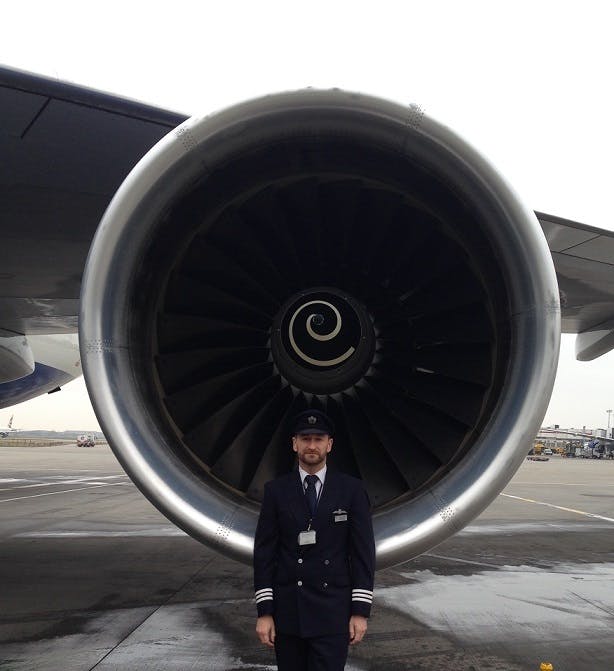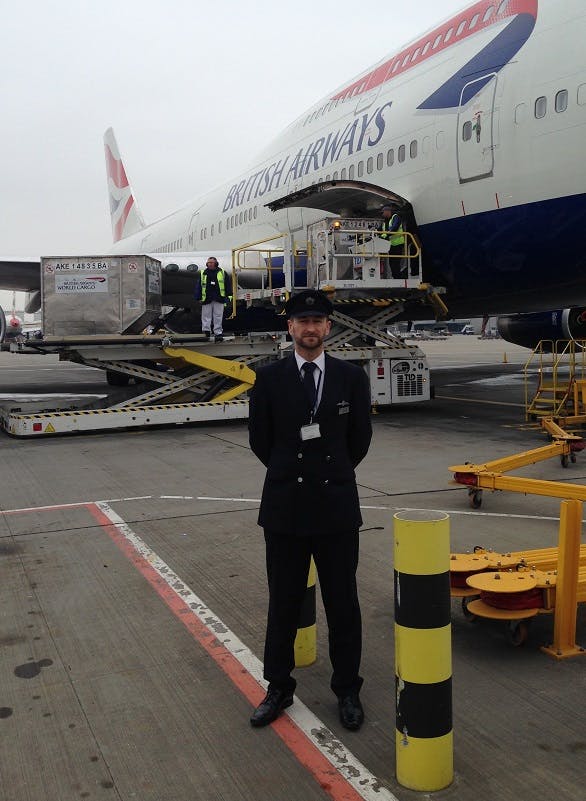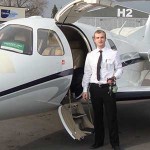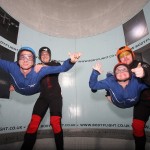Interview with pilot & risk specialist Matt Lindley

As a pilot myself, it’s always interesting to to find out about other’s aviation careers. Especially when they move from full-time flying into business, as I did. Recently I caught up with an old Royal Air Force colleague Matt Lindley, who is taking his considerable aviation experience into other sectors, advising on the human aspects of risk management.
Q: So Matt, tell us about the new business venture.
A: The aviation industry employs very advanced thinking and training around mitigating human risk. After many years as a pilot, I could see the potential of applying these same techniques to other sectors. That’s the heart of what we do at Propel Performance.
Q: Many pilots say they have always wanted to fly. What inspired you to start your aviation career?
A: It started pretty early for me, I repeatedly said I wanted to be a pilot from an early age. I remember one flight we took as a family to Malta. There were thunderstorms and other passengers were frightened, but I giggled all the way through. The drama and excitement got me!
I couldn’t afford to do commercial pilot training so I decided to join the RAF through the University Air Squadron. I didn’t have particularly strong military ambitions but I loved the camaraderie and the lifestyle in the RAF. It gave me a sense of belonging, amongst people with the same mentality.
Q: And what type of flying did you do in the RAF?
A: I started out flying Hawk fast jets at RAF Valley in Anglesey. This was exciting flying but after failing a weaponeering course, I had to rethink. I decided I wanted to be in Royal Squadron, flying VIPs and dignitaries. This is very difficult to get involved in, but I worked really hard and managed to make the move.
I was based at RAF Northolt and flew the HS125 (also known as Hawker 700) for three years, firstly as a co-pilot, then as a captain. Half of my flights were transporting VIPs – the royal family, prime minister and other cabinet ministers, within Europe and to the USA. The other 50% was military flying in Afghanistan.
After instructor training, I became head of training for Hawker pilots at Northolt, alongside my active flying role. Pilot training includes CRM (Crew Resource Management), focussing on how human error and poor communication and leadership can contribute to a higher risk of accidents.

Q: You left the RAF to become an airline pilot – how did that move contribute to the idea for Propel?
A: Well after 12 years in the RAF it was time to move on and British Airways were recruiting pilots. I spent 4 years flying their short haul fleet on an Airbus and was struck by how advanced they were in their CRM. There was a more collaborative approach than I had seen in the military, adopted in the 1970s and 1980s. The subsequent reduction in human error related incidents spoke volumes. I was very impressed.
Other industries were already coming to aviation to learn from this success – including the nuclear and oil industries. But I saw the potential for a broader application of these techniques in other fields.
An old colleague was now providing training to the NHS, to reduce human errors made in hospitals. I started working with him initially and then launched Propel Performance myself. We are a consultancy, helping organisations develop ways to mitigate human risk, it’s known as ‘Human Factors Training’.
Q: What does Human Factors Training actually involve?
A: All humans are fallible of course! And it’s estimated that as much as 75% of accidents and incidents in aviation are down to human error – rather than technical failings.
Ways of working that inadvertently increase risk can easily develop in any organisation. But there are methods of improving culture and communications, already proven in the aviation sector, that can help identify why we make mistakes and aim to reduce them. Such as helping to people at every level to feel more comfortable with challenging senior leaders, and looking at how work stress can lead to mistakes – and how to prevent this.
We train at all levels – both the general workforce and also senior management and fast track future leaders. The focus is on how to create a company culture that encourages more collaboration and allows everyone to be heard – while still respecting authority.

Q: Which other sectors do you think could benefit most?
A: Human Factors Training can be applied to almost any workplace, but there is most obviously potential where making an error has the most serious implications.
That’s why healthcare is already adopting this broad knowledge base from aviation. I am also currently working with the Environment Agency, providing assertiveness training. And I think the Financial sector could benefit enormously too.
Q: And are you still flying?
A: Yes, I was able to continue flying reduced hours for British Airways when I started Propel Performance. I now fly the Boeing 747 long haul.
Combining my business career with flying certainly makes for a busy schedule, but I am becoming a better pilot all the time, now that I am so focussed on sharing these non-technical skills with others.
Q: Finally (something I always ask a pilot), what’s your favourite route and approach?
A: I love flying from London to San Francisco. I love San Francisco as a place anyway, and the route from London takes you through the polar regions over Greenland.
My favourite approach is into New York JFK. It’s very challenging, requiring turning at low levels.
For more information about Propel Performance see www.propelperformance.co.uk or email matt.lindley@propelperformance.co.uk
Related content

What’s the difference between a Captain and a Pilot?

The best VLJ in the market? Ask the pilot



